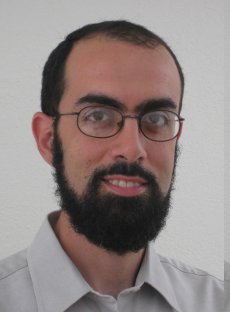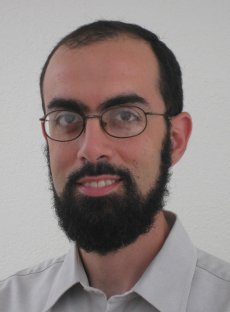
| معلومات عامة | أبحاث | البداية | تدريس | خدمة المجتمع |
| General information | Research | Home | Teaching | Community Services |


|
|

|
Teaching
|
التدريس
|
Vision for university teachingThe short visiting appointments I had at the American University in Cairo, the German University in Cairo, KAUST in Saudi Arabia, and SQU in Oman as well as the year I spent at Nanyang Technological University in Singapore complemented my experience at Cairo University and allowed me to interact with many colleagues in various settings. Through this journey, I found that a program which successfully addresses the individual educational needs of students has a much more profound impact on their lives and on society in general. Engineers use scientific principles to develop systems which fulfill people's needs. Thus, beyond mathematics and basic sciences, engineers should understand the intricate dependencies between manufacturing a product, working in large teams, and economy of scale on one side and consumers' perceptions, aesthetic aspects, and moral responsibilities on the other side. An engineering program which aims to instill in the students a balanced and integrated approach to life should enrich not only their minds but also their hearts and bodies. This balance and integration is a key idea which permeates my discussions with students. Many students keep isolated mental compartments for the different subjects they are studying. They build even thicker barriers between engineering and the rest of life. I tell my students that to understand how caches improve the access time of main memories they need to use the formula for the expected value of a random variable which they studied with my colleague in the probabilities class. To explain why processor designers prefer short wires in modern chips, we deduce together the fact that a long wire in a large chip running at full speed would behave more as a transmission line and might have signal reflection. I then ask them to continue the solution of the problem with my colleague who is teaching the electromagnetic waves class. During a lecture, I walk to a student and take permission to hold the smart phone present on the desk and ask the rest of the students about the differences they can tell me between its processor and the processors in the department's servers. Would their colleague prefer to have a more powerful processor which dissipates more heat? What is the minimum feasible size for the phone's circuits versus what is the minimum acceptable size for the phone to be used by a human? Do they buy a phone only based on its technical aspects or do they also consider how it looks? I encourage my students to derive the material they are learning through carefully selected questions and guided discussions. Such an approach makes them appropriate the knowledge and assists them to set in motion their innate abilities to lead a life of discovery in their own distinctive ways. Most students grasp this style in teaching within a couple of lectures. Thereafter, their initial barriers start to disappear. They begin to convey their thoughts on how to solve the problem and gladly accept other people's improvements on them. They comprehend that their ``older colleagues'' (collective name I use for scientists and engineers who first described the topics we are learning), went through the same path of discovery and problem analysis they are going through. By the end of the course they appreciate that they developed comparable abilities to their ``older colleagues''. They realize that by acquiring a comprehensive understanding and an investigating mind, they too can produce original breakthroughs to serve humanity. Teaching and ScholarshipGreat scholars over the history of mankind tended to present their ideas to their students through different media:
|
|
|
Today, we still use these media in varying degrees. Modern universities are the inheritors of the great knowledge that our predecessors left to us. Our duty is to transmit it to new generations and to add to it in the best manner that benefits humanity. In general, to teach a person is to convince him or her of applying new ideas that are supposed to be beneficial. A teacher thus uses three methods depending on the student with whom he is interacting. A teacher is either
In current terminologies, people shy away from the term "preaching" although this is really what happens most of the time in schools all the way up to university undergraduate classes. The material is not presented in a strictly rigorous manner nor other view points debated. The students are lead to believe what the teacher is saying via giving them many examples of its verasity (assuming it is really true!). As they grow older and acquire more knowledge, they get to see or hear about other interpretations of their basic notions. For example, they get to hear a professor saying that the laws of motion as presented in classical physics do not fully represent reality. They are then introduced to quantum mechanics as a better representation of reality. They soon realize that even quantum physics has different interpretations and that it is not compatible with another part of physics, that is relativity. It is at this stage that debates come into teaching. The students learn to evaluate the different opinions and lean towards the most plausible (at least in their view). They also learn how to convince themselves and others of the weakness or clear errors in other opinions. Debates are useful for those in doubt about a subject and those who can not distinguish the wrong interpretations from the potentially correct ones. A debate starts by the basic assumptions that both parties agree upon and ends by both parties agreeing that the "wrong" interpretations are "wrong". The quotes around "wrong" in the past sentence are there because, as in preaching, an unscrupulous or an ignorant teacher can lead the student astray. Unfortunately, the long middle ages of Europe were due to this exact flaw instead of getting the light that was shining in the Islamic civilization. A proof is really the pinnacle of knowledge transmission. However, not all the minds can grasp hard and lengthy proofs on every subject. Most people learn by "preaching", a few get to the "debate" level, and then a few of the few reach the high plateaus of "proof". Most of our human thought is not really at that proof level. Our understanding of the creation around us is a clear example. Whether it is in biology, chemistry, or physics most of what we have are theories and not theorems. A theorem is a proven concept while a theory is an interpretation of the known facts and a way to extrapolate in the future based on the past trends. Since those past trends as well as our analysis of those trends are not exhaustive, we cannot extrapolate accurately. Our theories are continuously being modified and re-interpreted. We are quite happy when we are able to interpret a phenomenon and happier when we can prove something. Scholars interpret and attempt to prove in order to saveguard our human knowledge and transmit it to future generations. They also do it to reach ultimate truths in life. A few of them do it because they are believers; it is their duty to serve God with the knowledge that He bestowed unto them. Their service to God is by improving the situation of their fellow humans in whatever way possible and dissiminating this knowledge. Teaching institutions (including universities) are the dwellings of those scholars. However, not all those who are in the universities qualify to be called a scholar in this "grandiose" sense that I just described. I am personally attempting to become one such scholar in the future and hope that God will help me. Modern universities provide a medium for teachers to convey the knowledge to the students through the different media described earlier. We can lecture, write books, conduct lab demonstrations, and evaluate students' performances in projects and exams. In all these respects, I strongly support frequent, perhaps daily in some cases, physical interactions with small groups of students. The inverse, that is the one evening per week virtual (through internet or televised) broadcast to a huge auditorium, is unfortunately spreading through campuses over the world. I do not support this massive way of teaching for everything. It is only suitable for the first method of "preaching" and is rarely able to bring the students up to the higher levels. Our human heritage is in danger if we over-generalise the use of technology to "mass-educate" in our classrooms. It is quite obvious that my personal preferences and background affect me in making my choices for teaching. This is in itself an example of "theories" that might be debated but not conclusively proved on what is the best way to teach! Moreover, we need to agree on what "best way" mean and how to measure that it is best. That might be an even longer debate. See me in person if you want to get into this discussion! I have written a report regarding my first impressions on how to improve the situation in the school of computer engineering at NTU. You might find it useful. There is an estimator for acceptance in PhD programs in the USA that some students might find useful. |
|
Page designed and maintained by Hossam A. H. Fahmy. This page has Valid XHTML 1.0 (strict) and Valid CSS! |
القائم بتصميم وتحديث الصفحة حسام علي حسن فهمي هذه الصفحة تتبع مواصفات XHTML 1.0_strict و CSS! |